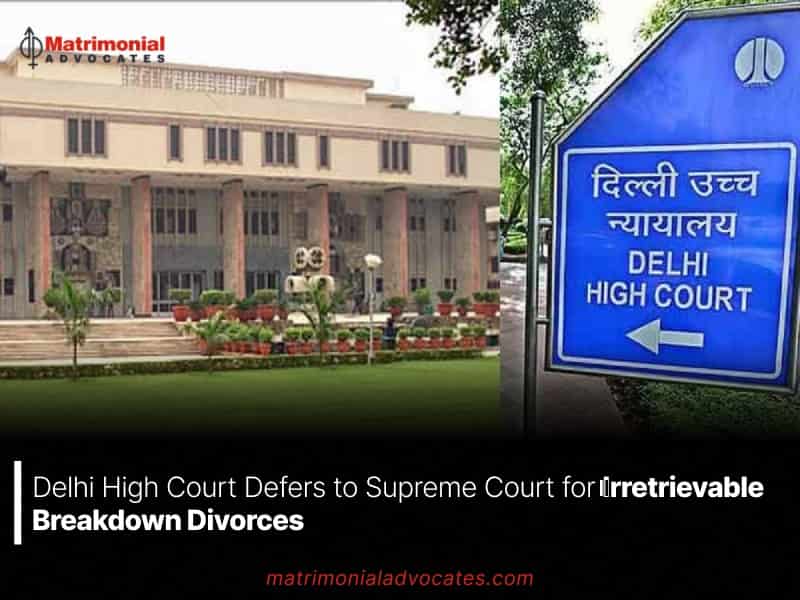
The Delhi High Court has unequivocally affirmed that the exclusive jurisdiction to grant a divorce on the grounds of irretrievable breakdown of a marriage is vested in the Supreme Court, as delineated by Article 142 of the Indian Constitution.
In a pertinent case where the wife appealed a divorce decree rendered by the Family Court under Section 13(1)(i-a) of the Hindu Marriage Act, 1955, the Court judiciously scrutinized the evidentiary presentation provided by the husband. Following a meticulous examination guided by the preponderance of probabilities, the court conclusively determined that the husband’s allegations of cruelty on the part of his spouse were inadequately substantiated.
The bench, comprising Justice Sanjeev Sachdeva and Justice Manoj Jain, emphatically underscored that the power to grant a divorce based on the irretrievable breakdown of a marriage is exclusively vested in the Supreme Court, pursuant to Article 142 of the Constitution of India. This authority is not extended to the High Courts, let alone the Family Courts.
The Bench noted, “No parallel can be drawn from said judgment by the respondent in view of distinguishing facts of the present case. Moreover, as already noted, the power to dissolve marriage on account of “irretrievable breakdown‟ vests with the Supreme Court only, which also cannot be sought by any of the parties as a matter of right”.
The Appellant, identified as the Wife, sought the Court’s jurisdiction to contest the verdict of the Family Court, which had granted her husband’s petition for divorce under Section 13(1)(i-a) of the Hindu Marriage Act (HMA).
In its deliberation, the Court acknowledged the absence of a statutory definition for the term “cruelty” as stipulated in Section 13(1)(i-a) of the HMA. This statutory ambiguity adds complexity to the judicial determination of the specific nature of cruelty. The Bench expounded that cruelty encompasses both physical and mental aspects, whether individually or in combination. While physical cruelty can be substantiated through corroborative evidence, mental cruelty remains inherently subjective and challenging to quantify. The Court underscored that ascertaining mental cruelty necessitates a comprehensive assessment of an array of interrelated factors particular to each case.
Furthermore, the Court referenced a previous Supreme Court decision (Samar Ghosh v. Jaya Ghosh, 2007) and emphasized that there is no universal standard to ascertain cruelty; it should be determined by a meticulous examination of the particular facts in each case.
The Court also highlighted the lack of substantiated evidence supporting the husband’s claims of cruelty by his wife. Two primary reasons led to this conclusion. Firstly, the husband requested the appointment of a local commissioner to verify that his wife was operating a coaching center but failed to provide substantial evidence, relying solely on verbal allegations. Secondly, even if one were to assume his wife’s involvement in such a center, the husband did not elucidate how this could be construed as an act of cruelty.
“Thus, the picture which emerges out is very clear. There was loss of trust, faith and affection between the parties but despite that, they both were trying hard to save the family. The husband even withdrew his case seeking restitution of conjugal rights. His mother also withdrew her one complaint”, the Court noted.
Accordingly, the Court allowed the Appeal and set aside the impugned order.





